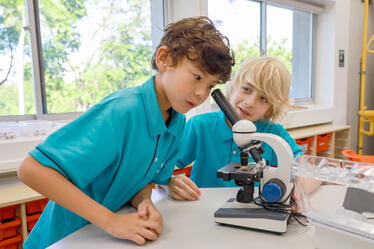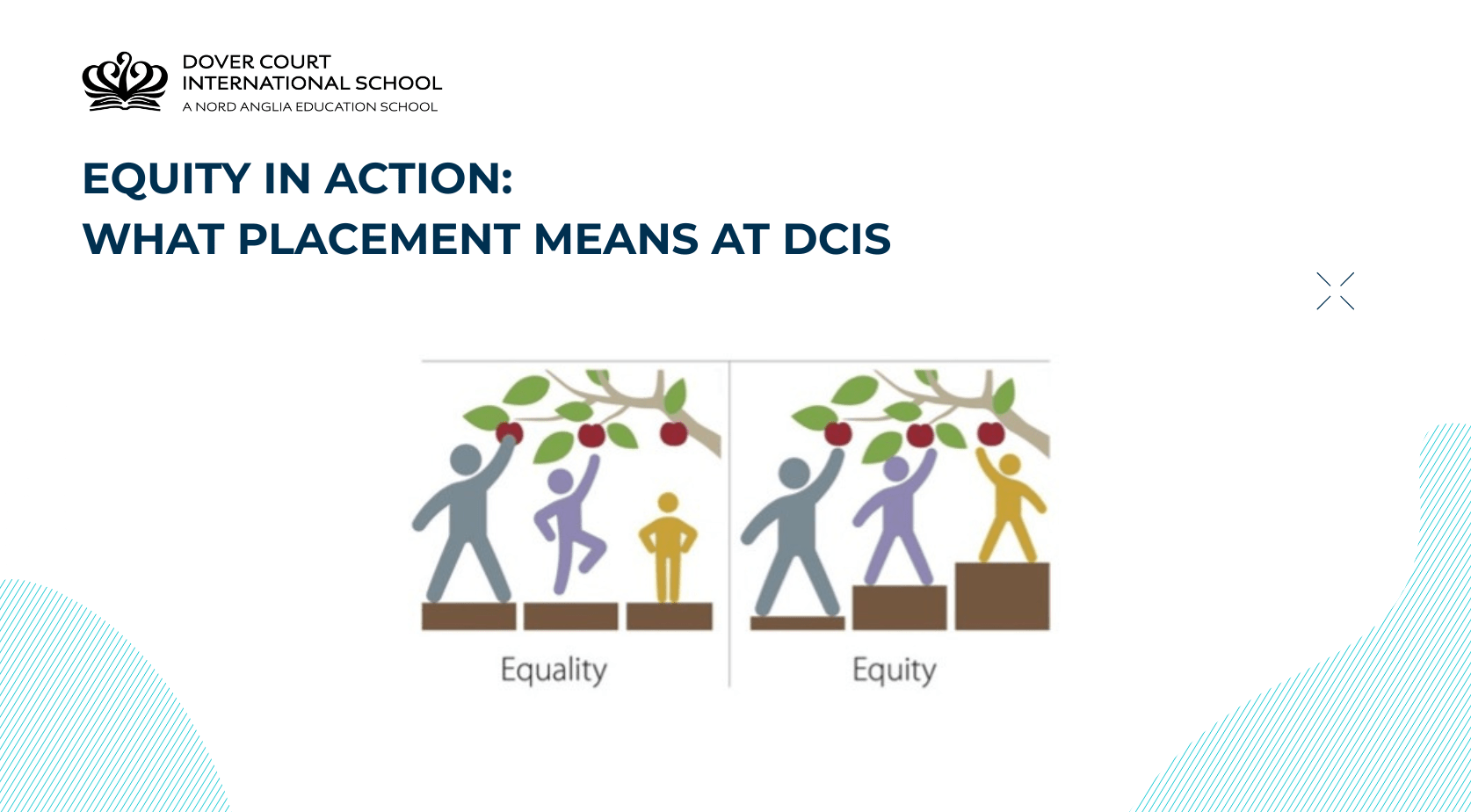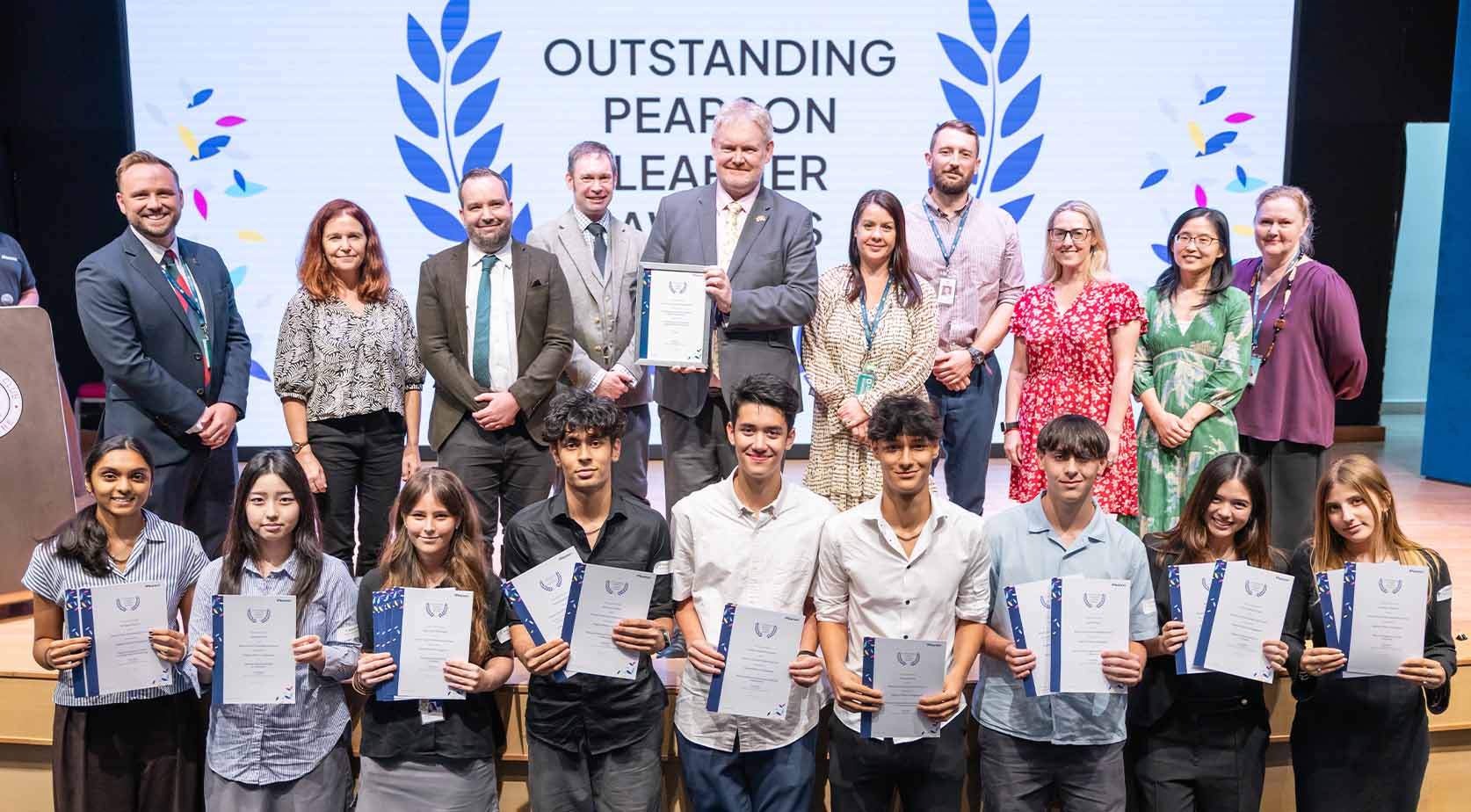Growth Mindset In the Secondary School at DCIS, we are constantly encouraging our students to have a growth mindset.
In the Secondary School at DCIS, we are constantly encouraging our students to have a growth mindset. We see this as crucial for their future success at IGCSE, IB and beyond.
We strongly believe that if students have a ‘growth mindset’ then they can progress and develop in a much more rapid way than if they have a ‘fixed mindset’.
What is a ‘Fixed Mindset’?
In a fixed mindset, it is believed that basic people believe their qualities, such as intelligence or talent, are simply fixed attributes. Rather than spending time trying to develop these qualities, people with a fixed mindset spend time documenting or comparing these qualities to others. People with a fixed mindset also believe that talent alone creates success and may therefore avoid challenges, give up easily and see effort as fruitless.
What is a ‘Growth Mindset’?
In a growth mindset, it is believed that abilities and intelligences can be developed. People with a growth mindset believe that they can develop talent and intelligence. They also understand that talent alone cannot create success and that effort, hard work and determination are equally, if not more important, characteristics. People with a growth mindset therefore embrace challenges, persist in the face of setbacks and see effort as the path to mastery.
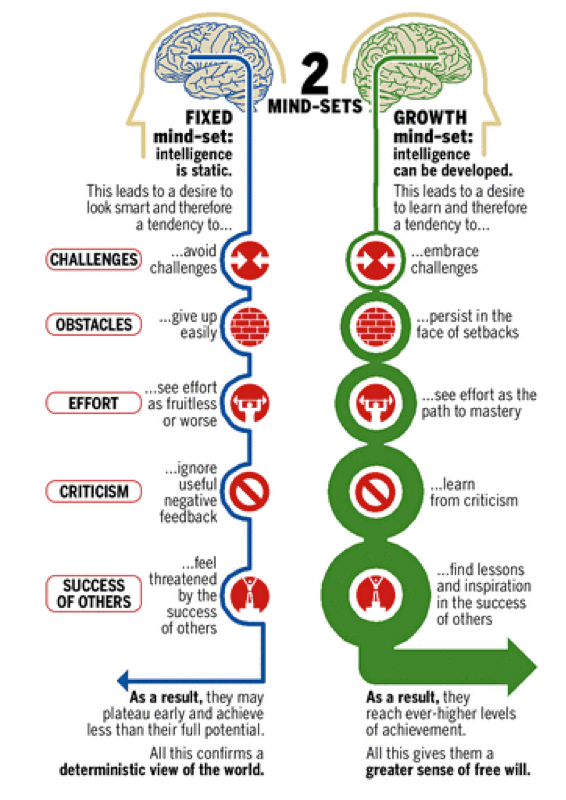
Maria Popova, 2016
What evidence is there for the positive effect of having a ‘growth mindset’?
Recent research in neuroscience has demonstrated that the brain is far more malleable than previously believed. Advances in the understanding of brain plasticity has shown how links between neurons can change over time and after experience. Deliberate practice means that neural systems grow new connections, toughen existing ones, and build insulation that speeds transmission of impulses. These neuroscientific discoveries have shown us that we can increase our neural growth by the actions we take, such as using good strategies, asking questions, practising, and following good nutrition and sleep habits.
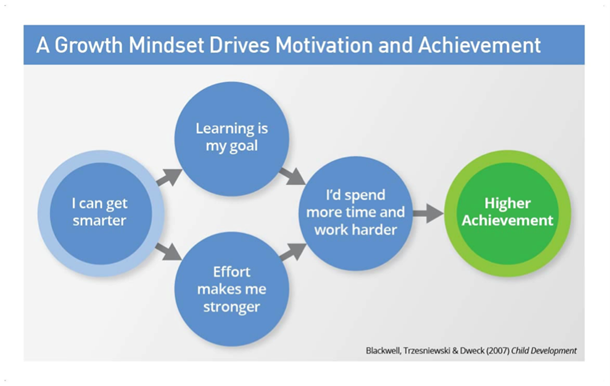
How do we encourage our students to have a ‘growth mindset’ in the Secondary School at DCIS?
In Key Stage 3, we embed the philosophy of ‘growth mindset’ with all of the students. The structure of our assessment system is a ‘next steps’ approach, meaning that students focus on their target rather than the grade or percentage that they have achieved in their assessment. The students do receive a ‘progress’ measure after each assessment, but rather than being a percentage or a grade, this is split in to 5 descriptors of:
- Making exceptional progress
- Making good progress
- Making expected progress
- Working towards expected progress
- Making below expected progress.
This system ensures that students are still aware of how they are progressing, but their main focus is on the ‘next steps’ that the teacher has advised. The ‘progress’ for each student is bespoke to the individual student; a combination of CAT4 data and teacher judgement means that we are assessing the students against where we expect them to be as an individual. This therefore prevents students from comparing themselves to each other and rather focuses them on embracing their personal challenge, persisting in challenging tasks and learning from feedback and targets.
How does the way teachers teach help to develop a ‘growth mindset’?
In the Secondary School, our Teaching and Learning strategy is based on a 6 tier process of Challenge, Explanation, Modelling, Practice, Questioning and Feedback. This structure means that students are consistently being challenged to achieve highly, persevere to understanding with the support of modelling and explanation, engage in deliberate practice to embed their learning and then get feedback from their teacher to continue the cycle of improvement and development.
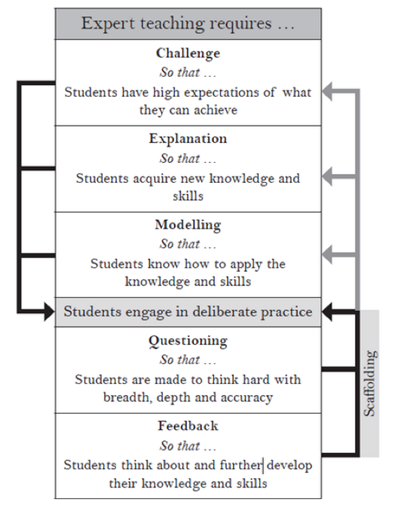
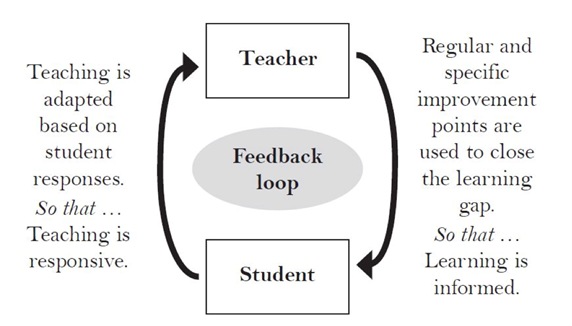
Making Every Lesson Count: Six Principles to Support Great Teaching and Learning Book by Andy Tharby and Shaun Allison (2015)
What can parents do to support their child in developing a ‘growth mindset’?
It is crucial that parents are able support their child by echoing the language that we use in school when learning is discussed at home. The way that parents discuss learning and ability with their son or daughter can have a huge impact as to whether children develop a ‘fixed’ or a ‘growth’ mindset. Here are three tips to help in supporting your child to develop a ‘growth mindset’:
- Recognise your own mindset: Be mindful of your own thinking and of the messages you send with your words and actions.
- Praise the process: Praising children for being intelligent suggests that innate talent is the reason for success, while focusing on the process and their effort helps them see how their effort leads to success.
- Model learning from failure: When parents talk positively about making mistakes, children start to think of mistakes as a natural part of the learning process.
This video can also help to illustrate some of key points that can help you to understand how to support developing a ‘growth mindset’ with your son or daughter.
https://www.mindsetkit.org/growth-mindset-parents/how-parents-can-instill-growth-mindset/3-ways-parents-can-instill-growth-mindset
Heather Rinaldi
Acting Head of Secondary




